Bagan – Adventures in Myanmar
A quick flight from Yangon took us to Bagan. It is the city of 4444 temples and pagodas, mostly from the 13th century. The title image is of Narathihapatae Phaya. It is also called Tayok-pyi < ta ‘Mongolian’ + yok ‘strong energy’ + pyi ‘run away’ + phaya ‘temple.’ It is unfinished.
Here’s the story: In 1287 during the construction of the temple the ground started moving. People thought an earthquake was happening. Instead, it was Kublai Khan with his army of 9000 men on horseback invading. The Burmese upped sticks and left town.
Bagan: Temples, Temples, Temples
Everywhere you go in the area you see temples. Including from the lobby of my hotel, The Aureum Palace, which I highly recommend.

Next door to the hotel is a viewing tower. Here I am with my guide, Win Kyaw Zan:
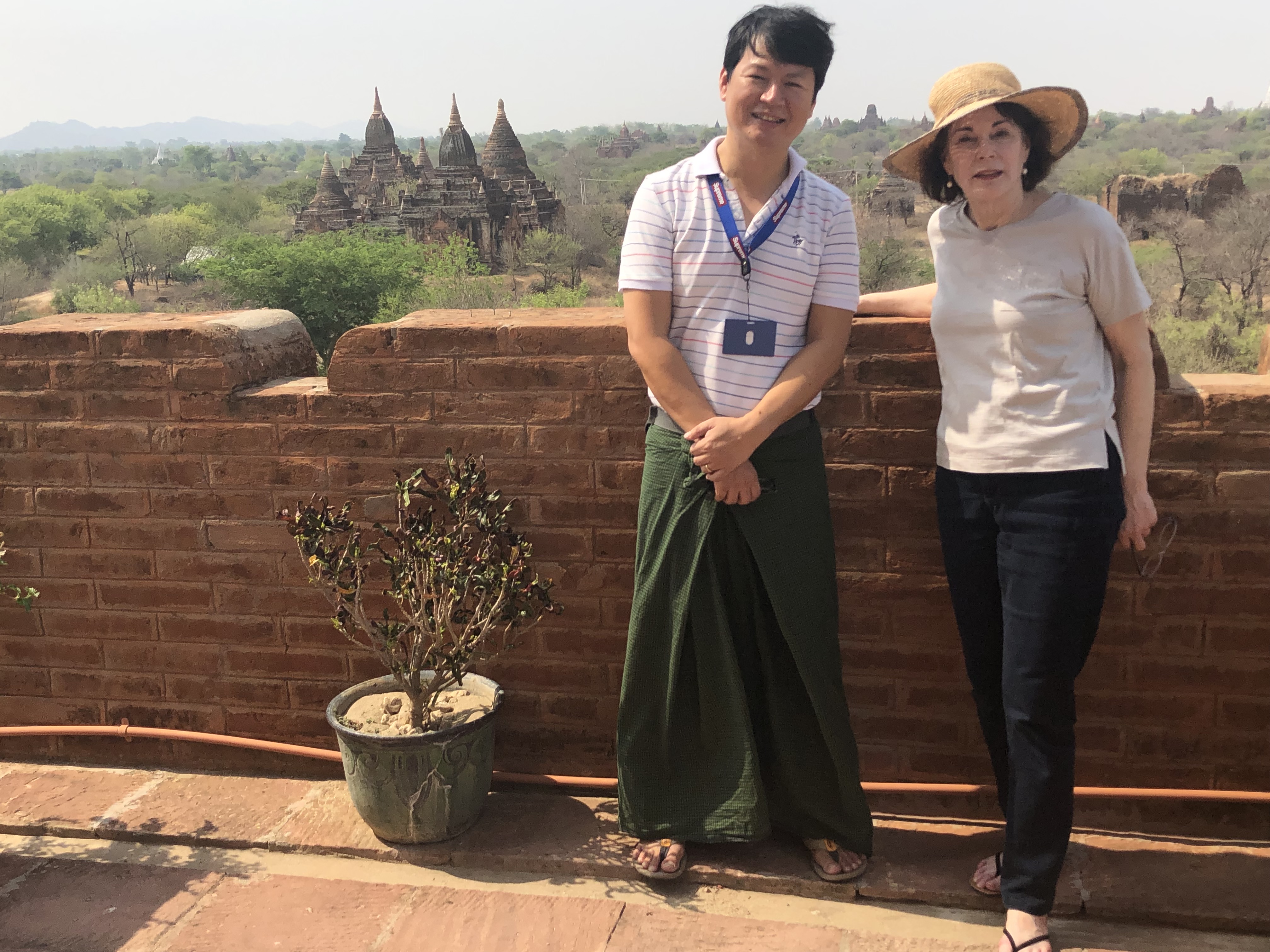
Win is wearing the traditional longyi, which nearly everyone wears in Myanmar
When I say there are temples everywhere, I mean everywhere. You drive by them.
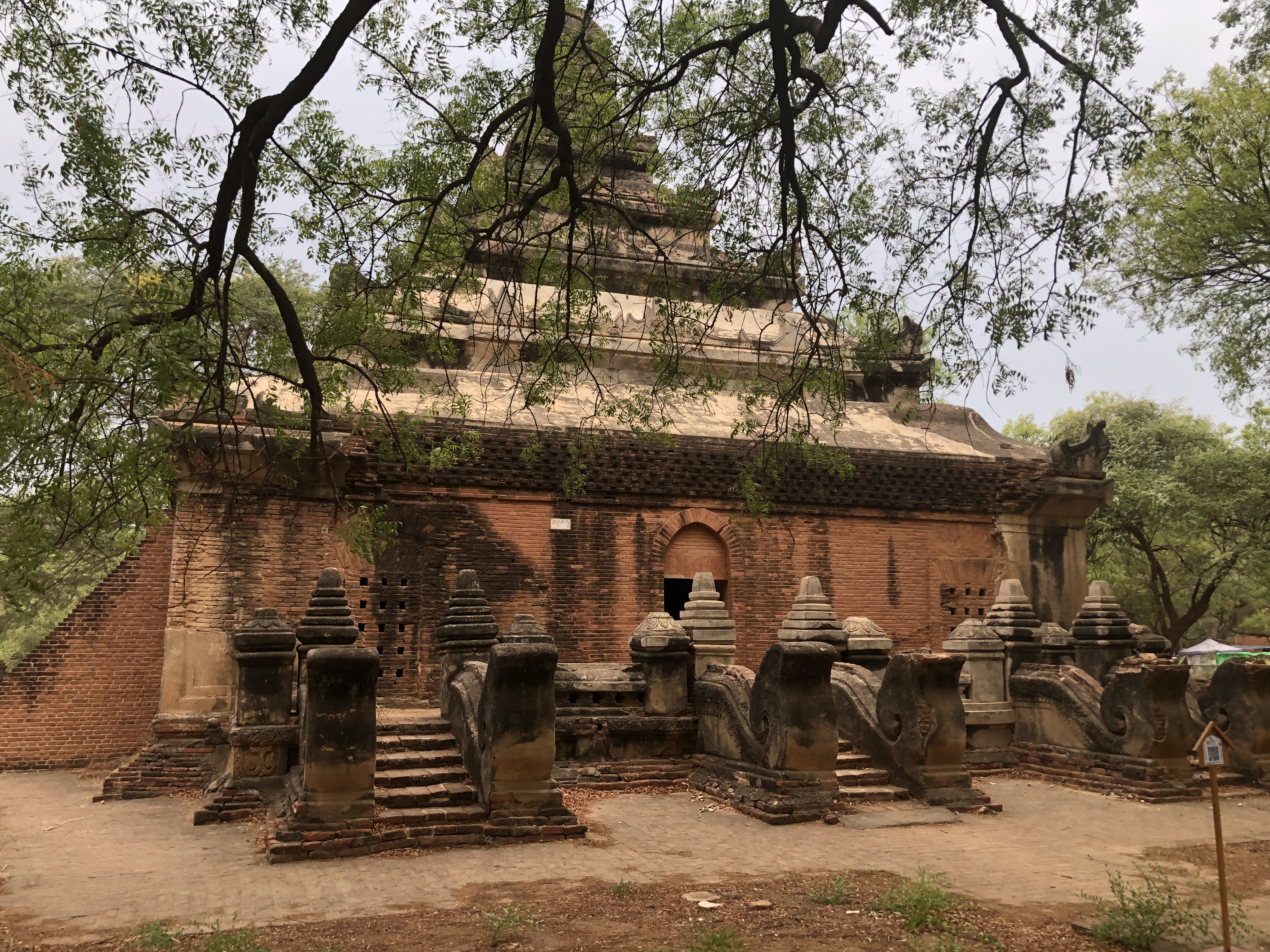
You glimpse other temples behind temples.

The landscape is multilayered.

It goes on and on. Truly impressive. Mistily romantic with a haunting air of the past.
Bagan: Shwezigon Pagoda
As if all the temples aren’t enough, Bagan boasts the Shwezigon Pagoda (shwe ‘gold’ + zigon ‘sandstone’)
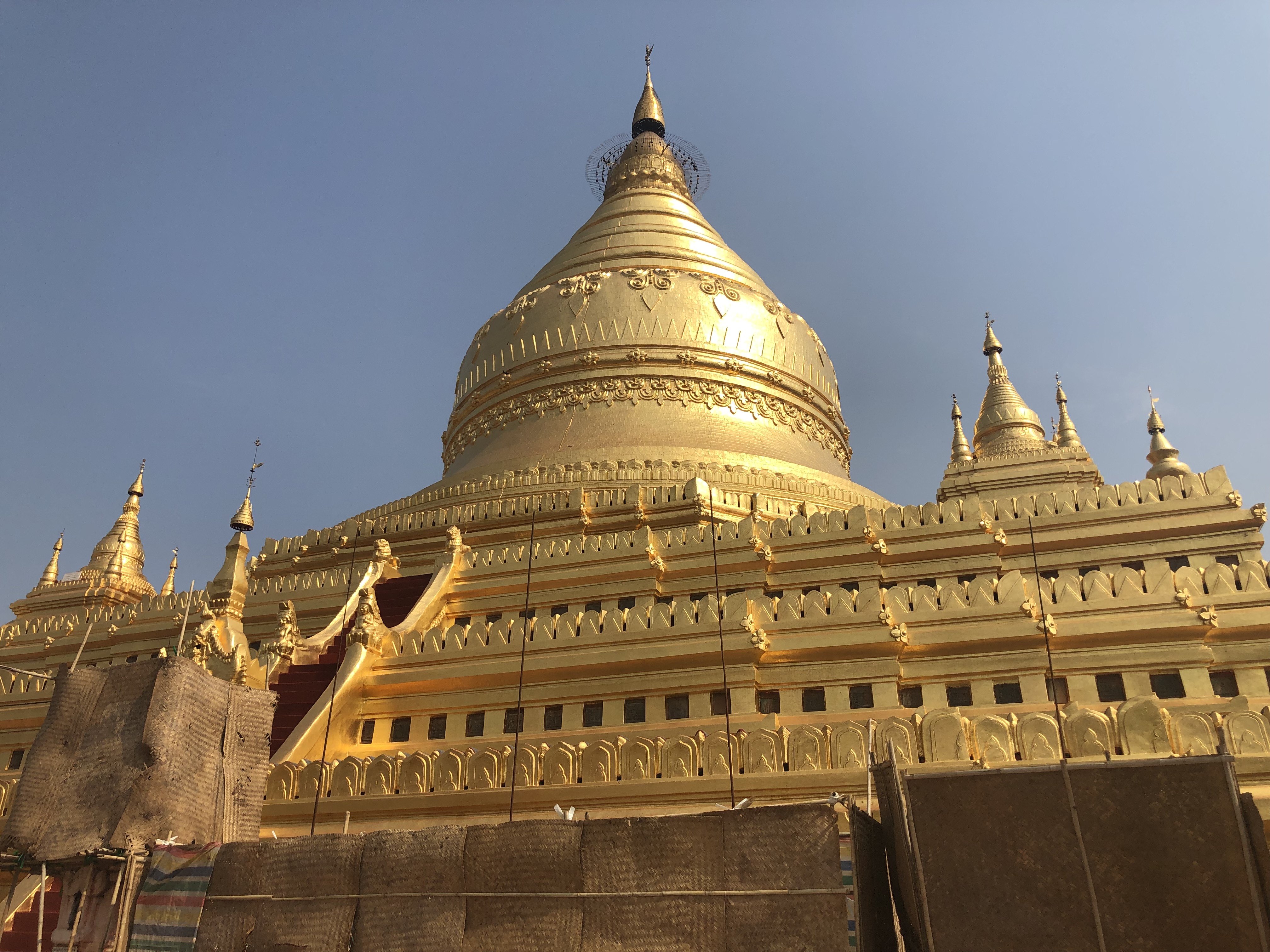
Love the umbrella!
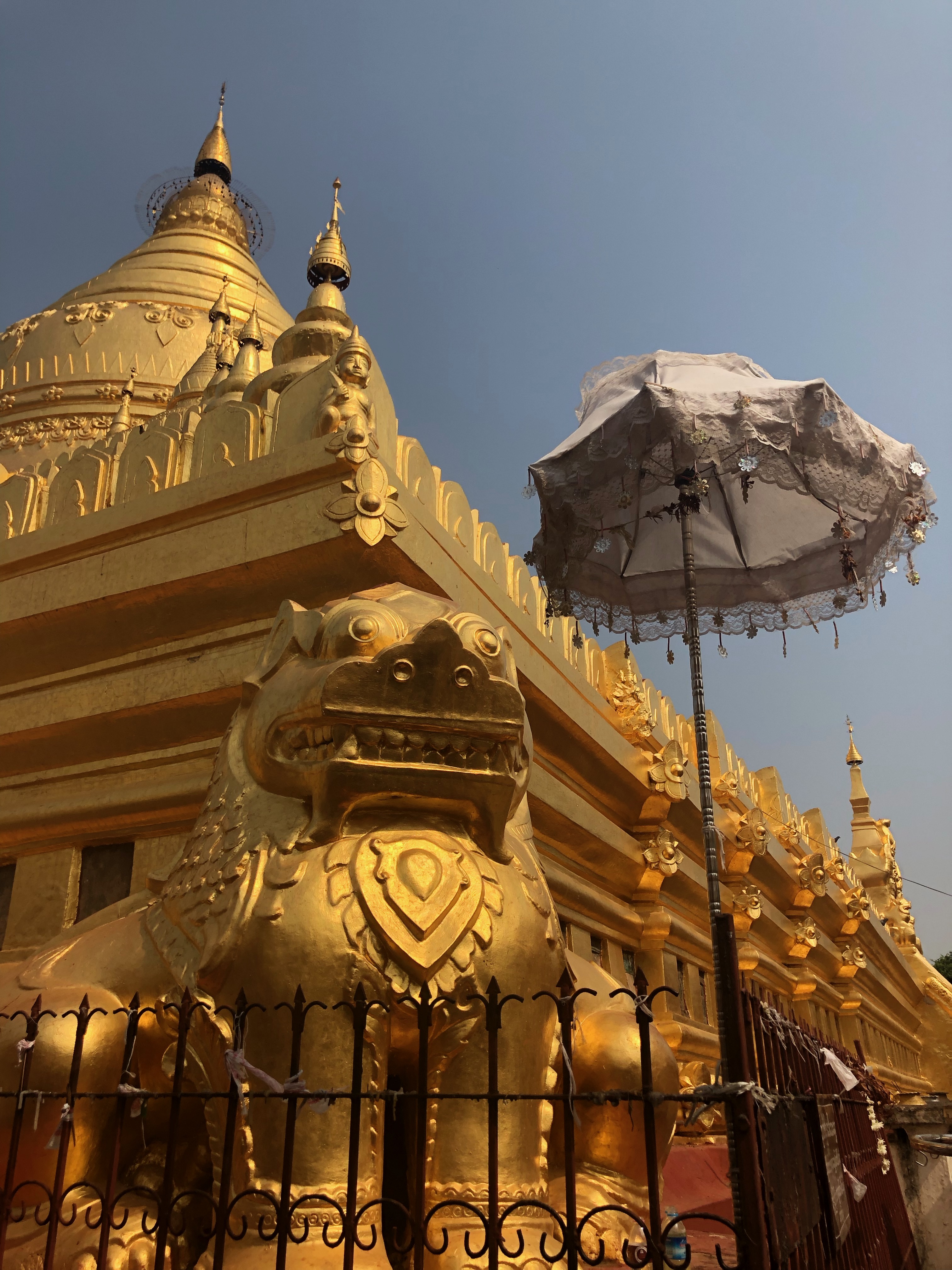
Just like my experience at the Shwedagon Pagoda in Yangon, I hardly knew where to look at the Shwezigon Pagoda in Bagan. It is so rich.
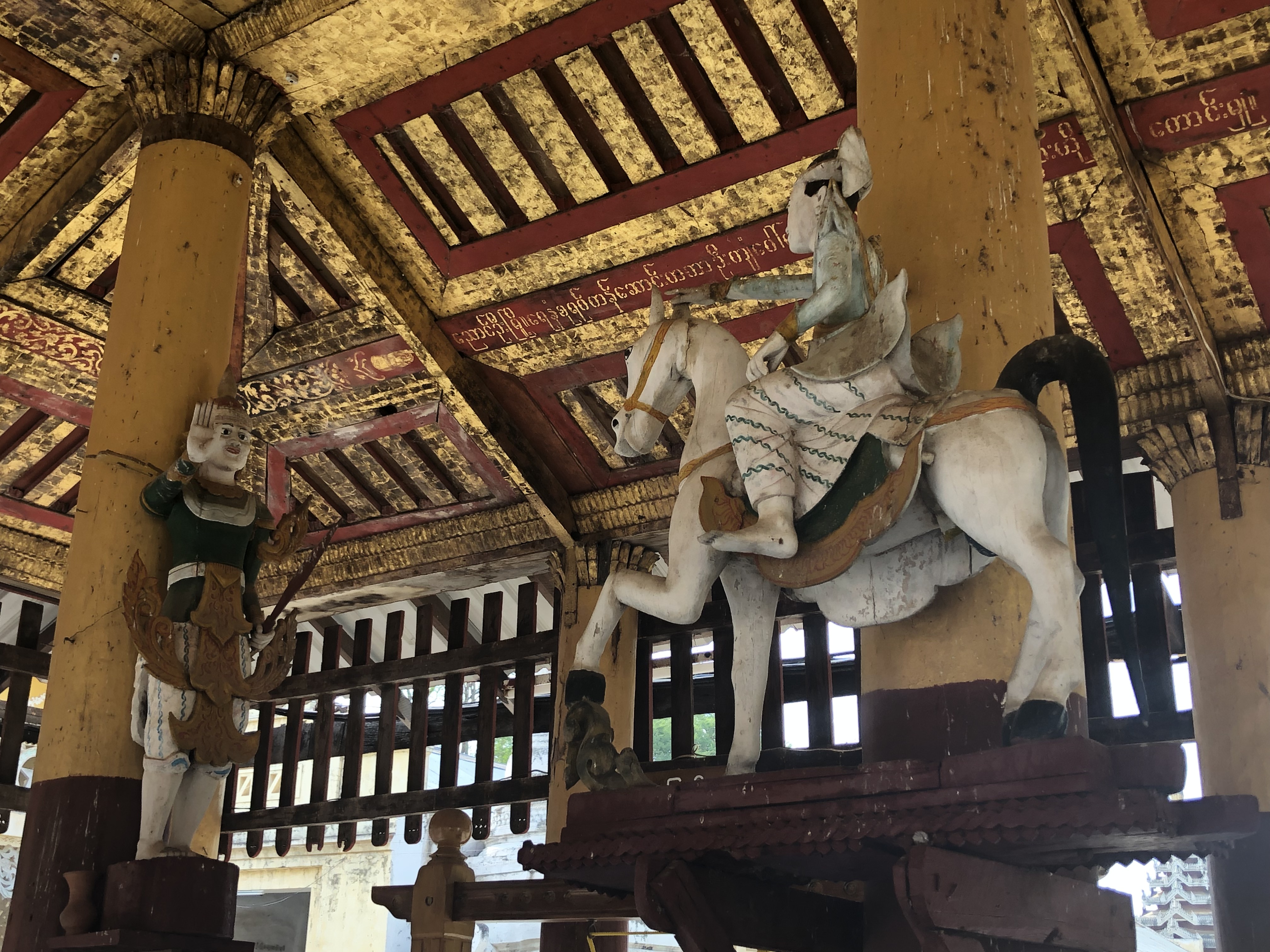
The gold is truly impressive:
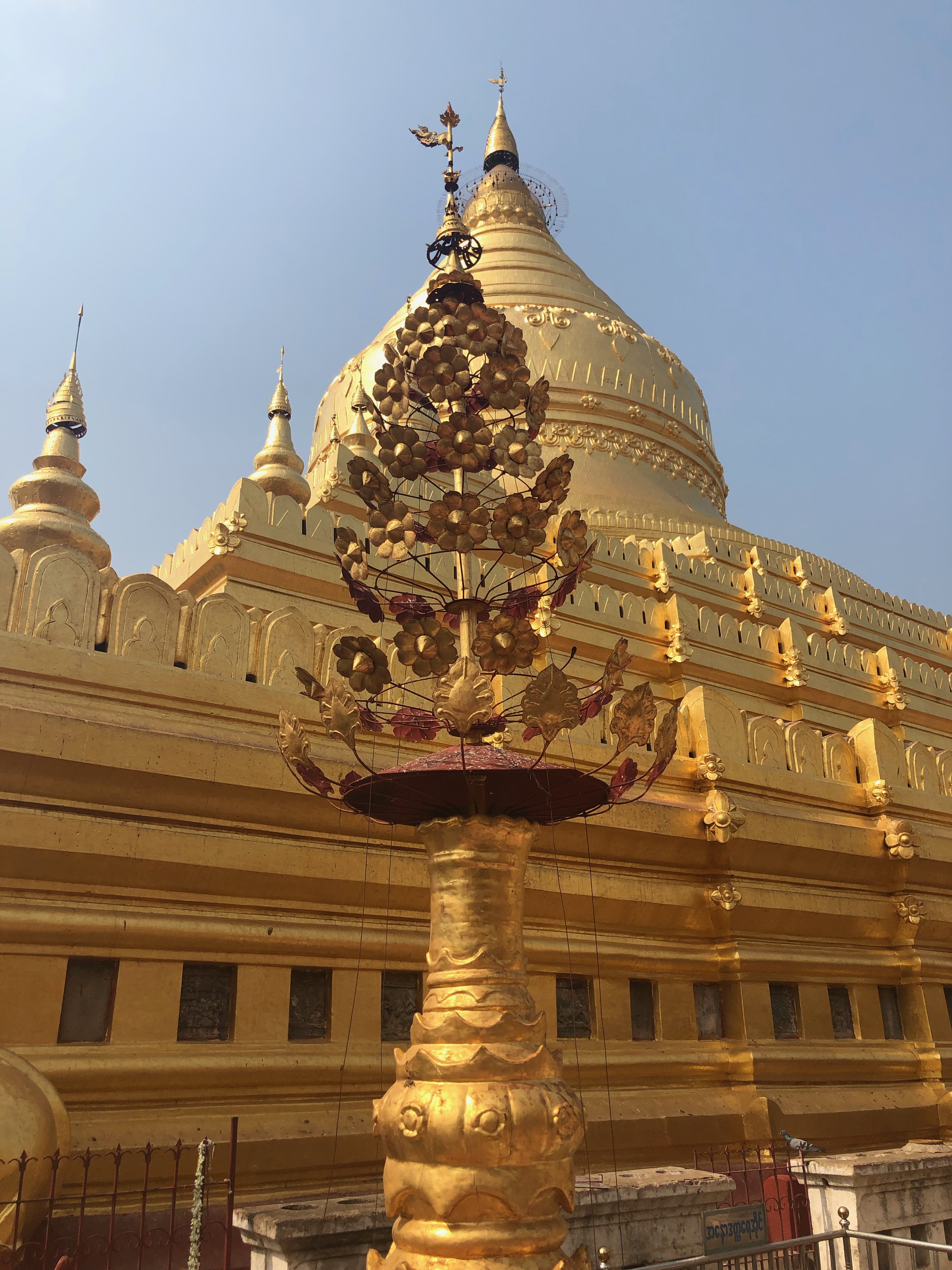
One more vista:
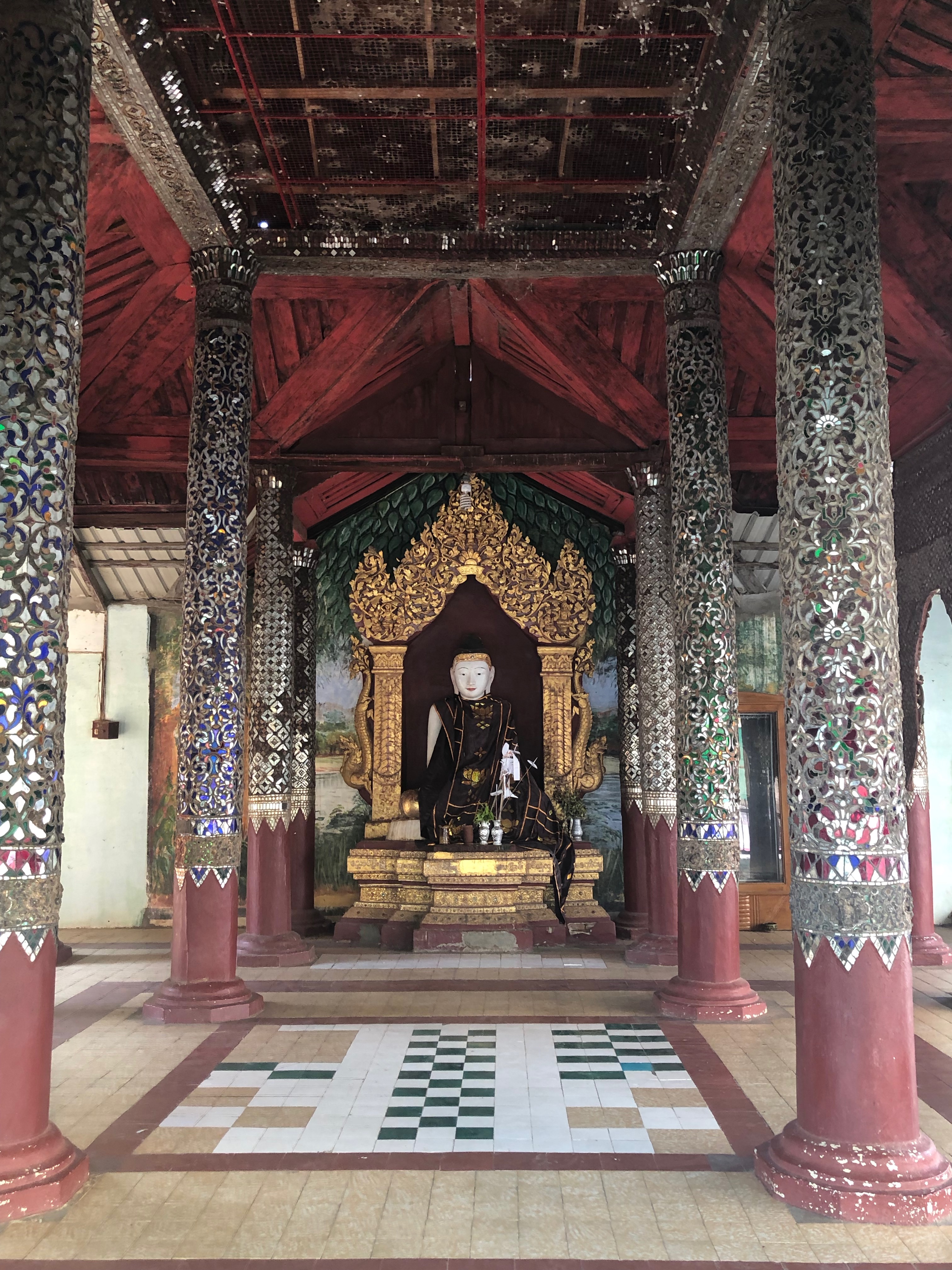
Bagan: Ananda Temple
Ananda Temple is as impressive as everything else in Bagan.
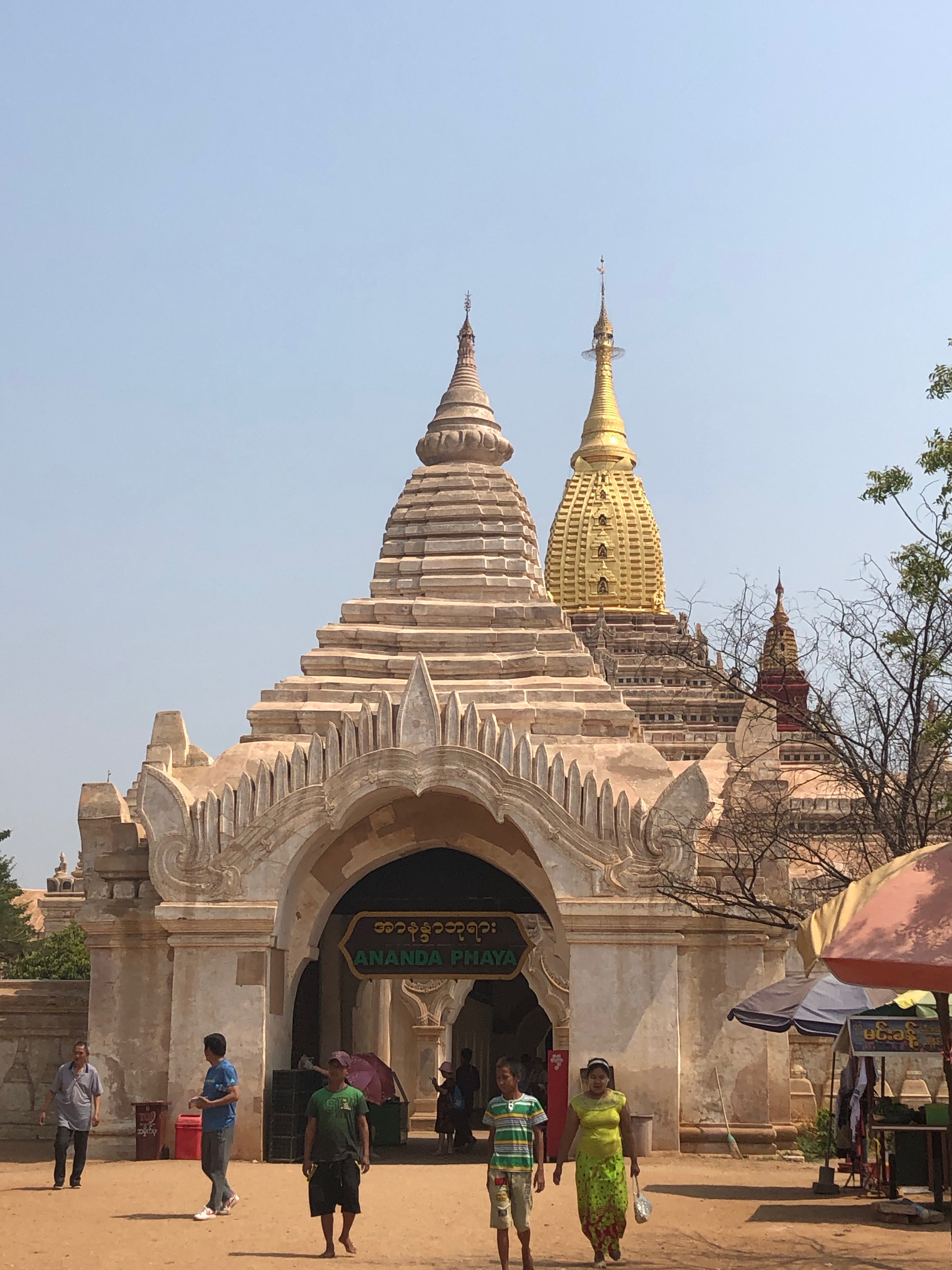
You always take your shoes off:
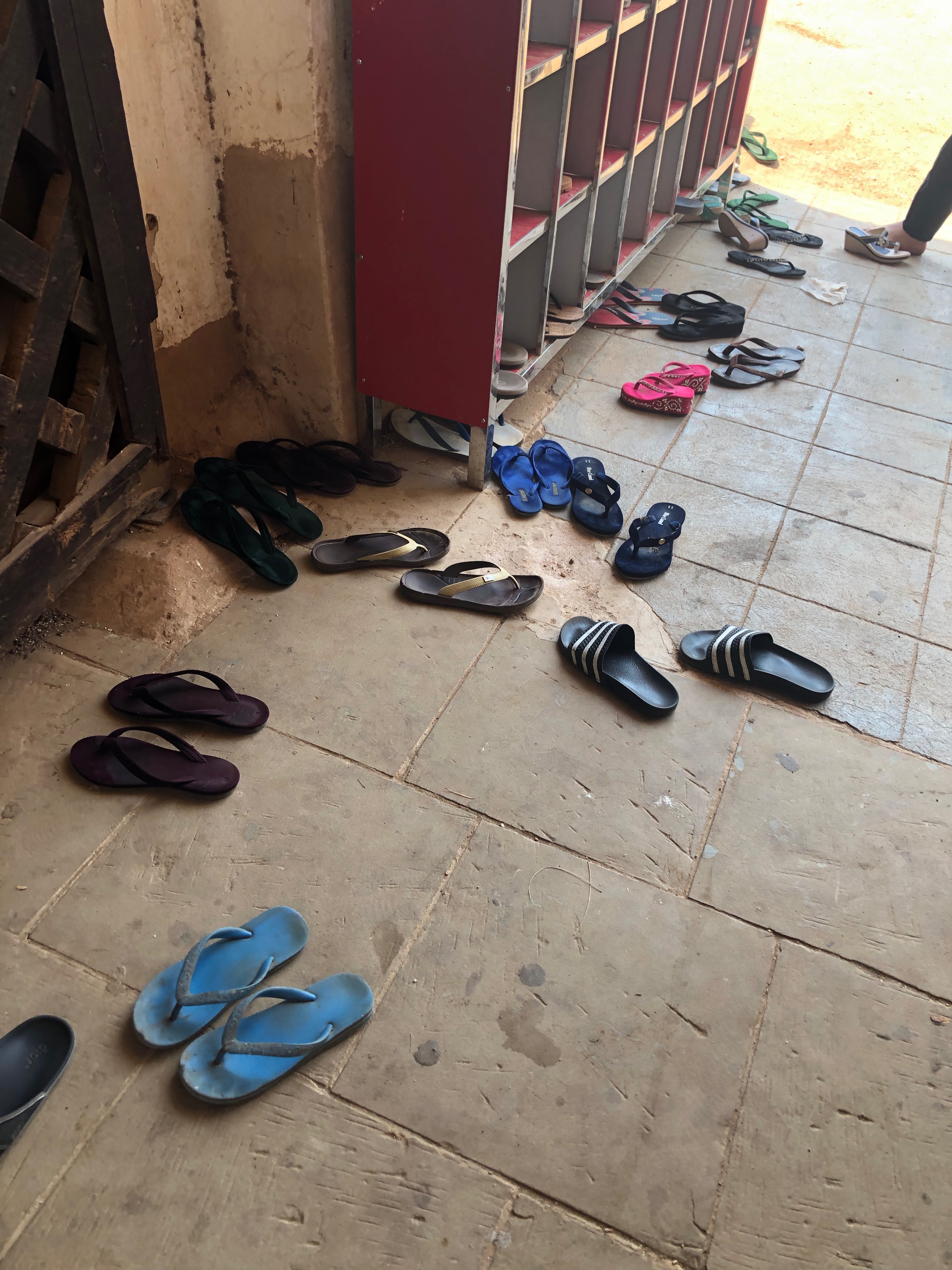
The temple has four very big Buddhas. They stand in recesses on all four sides of the building. Here’s one:
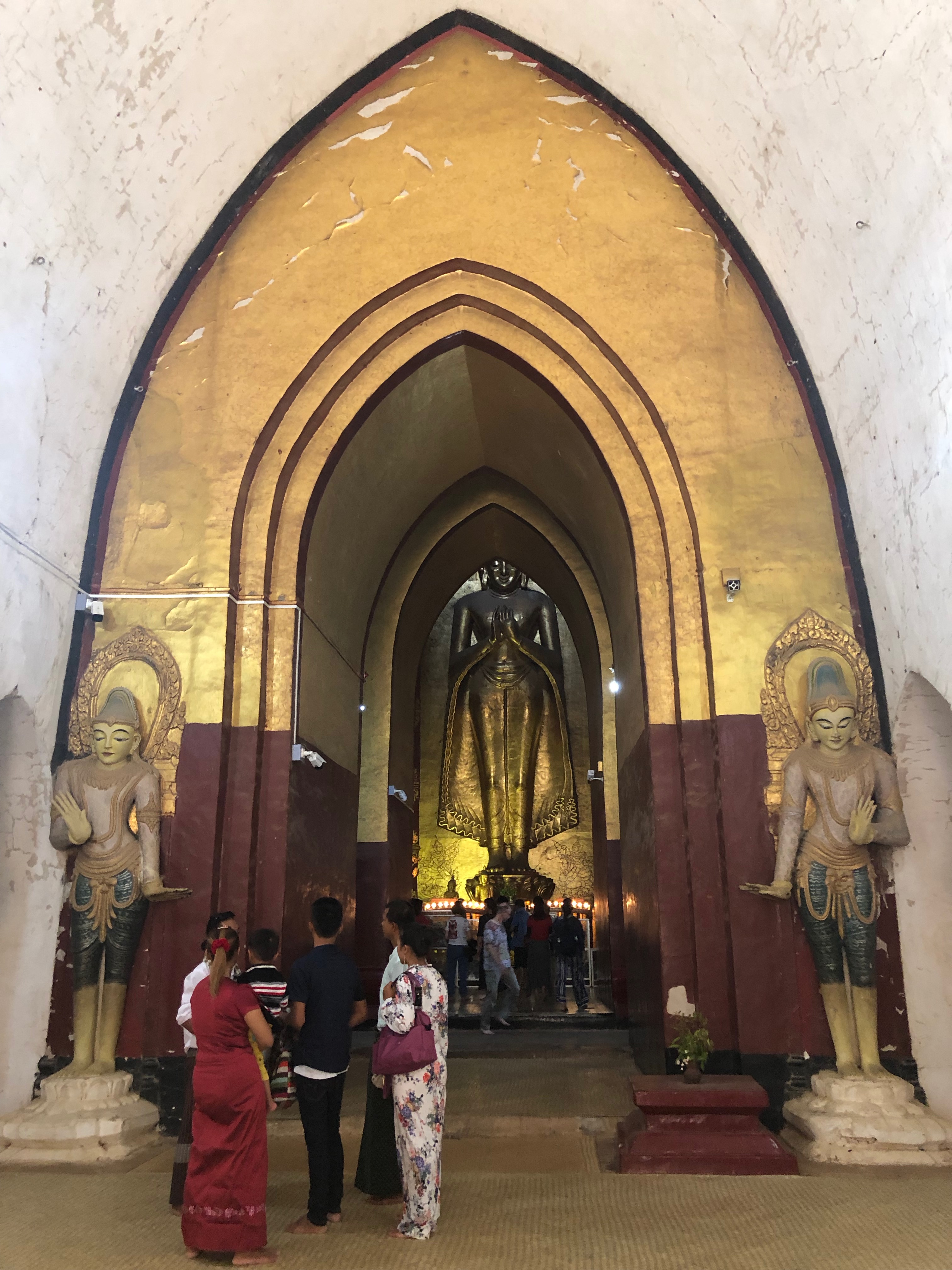
Hindu gods guard the alcove. The Hindu gods were working for the people before Buddha came along, so, the people – you know – just kept them
Now close up:
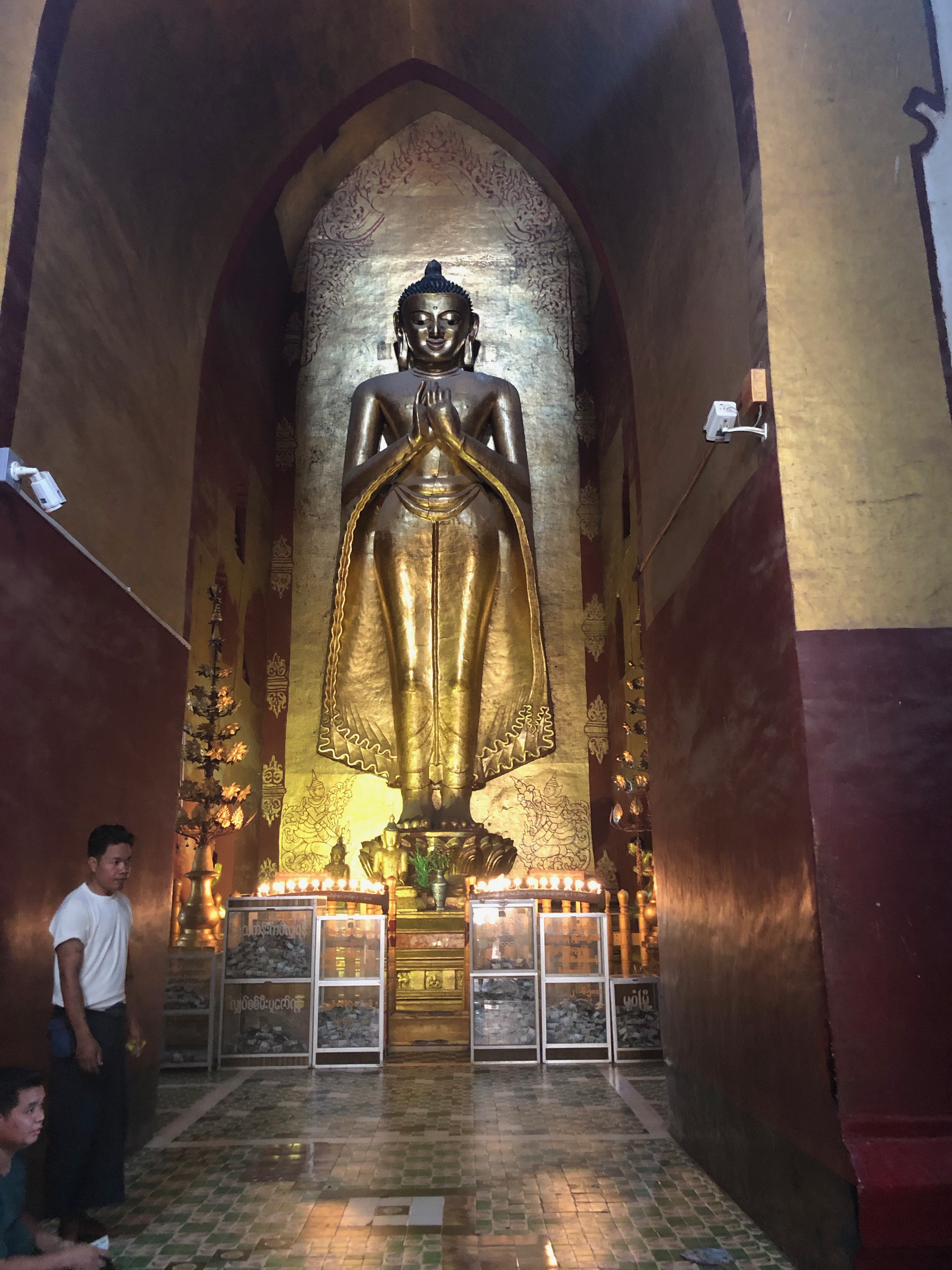
It’s a large and complex building.
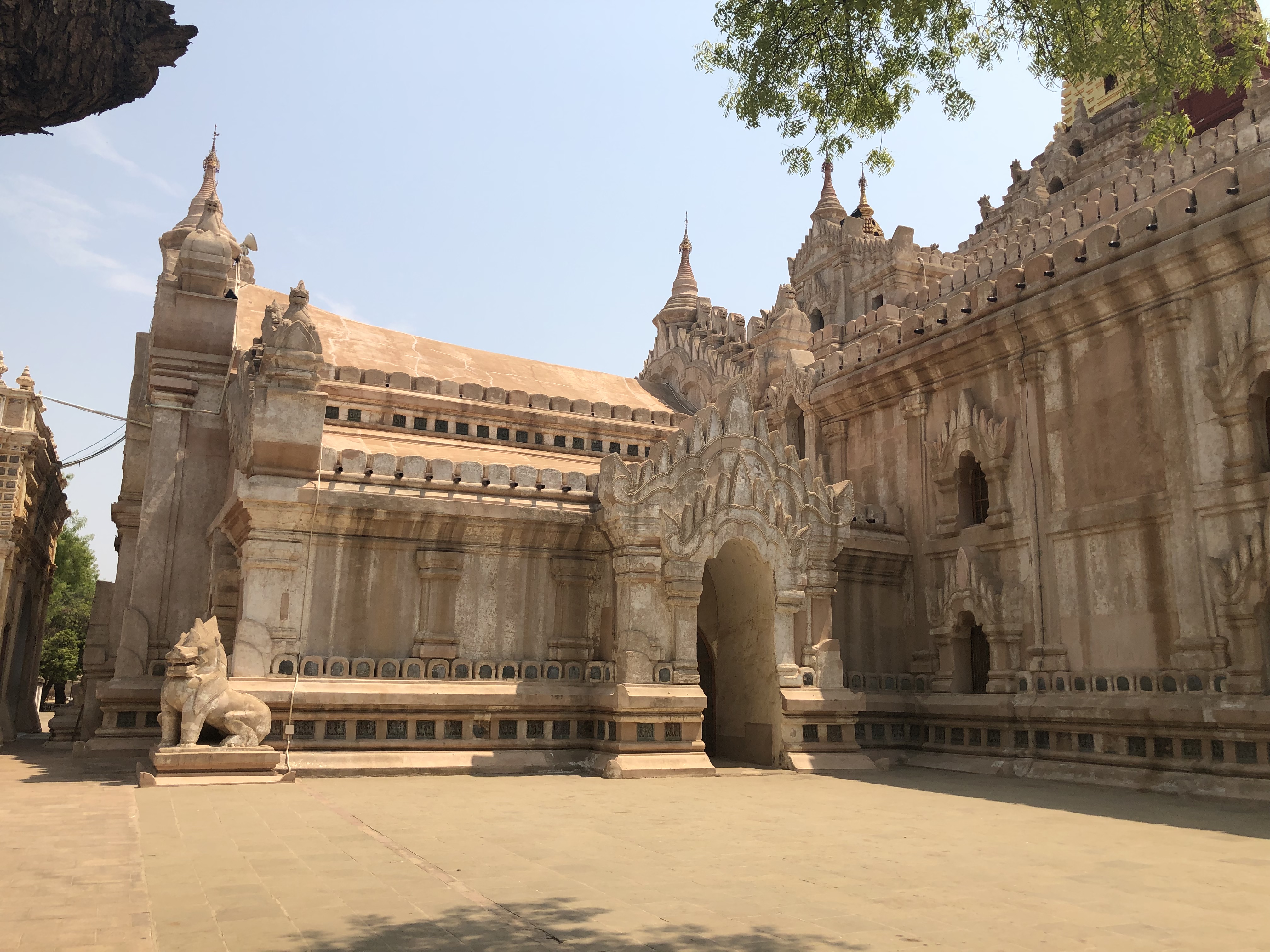
Bagan: The Haunted Temple
This temple is also known as Dhamma-yan-gyi < dhamma ‘teachings of Buddha’ + yan ‘enemy’ + gui ‘big’. It is also the biggest of all the temples.

Haunted, why?
The story goes: In the 12th century King Narathu assassinated his father and older brother to inherit the throne. Then he built the temple to atone for his sins. However, as Win pointed out, the king didn’t exactly learn his lesson.
Next, he either married a beautiful princess from India and then had her killed for some reason.
Or he ordered bricks to be made from towns all over Burma, and if the bricks from a certain city weren’t even in size he had the workers killed.
Or maybe he did both.
Any way you look at it, he was a bad guy.
He left us some good Buddhas, though.
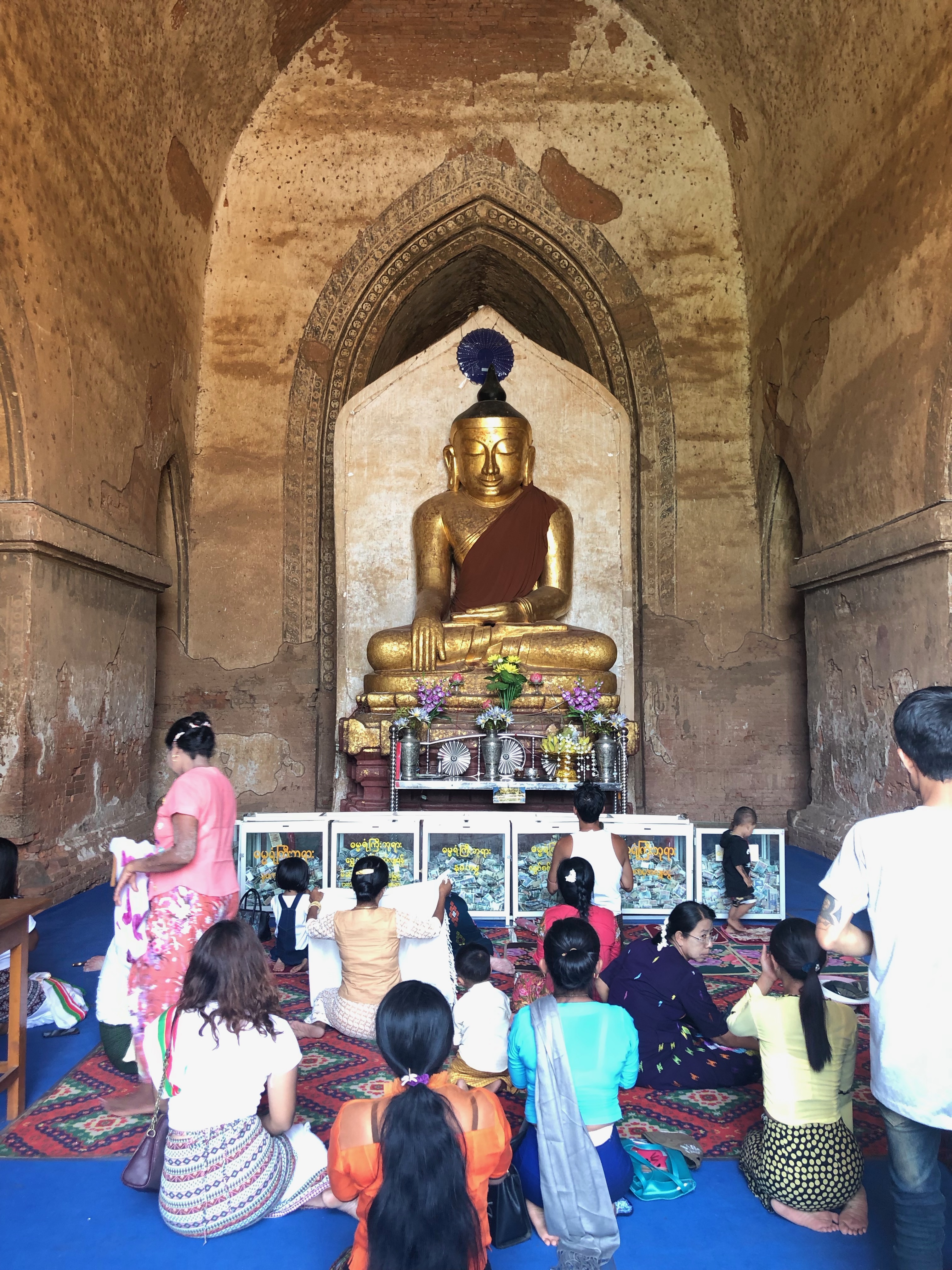
Another pair:
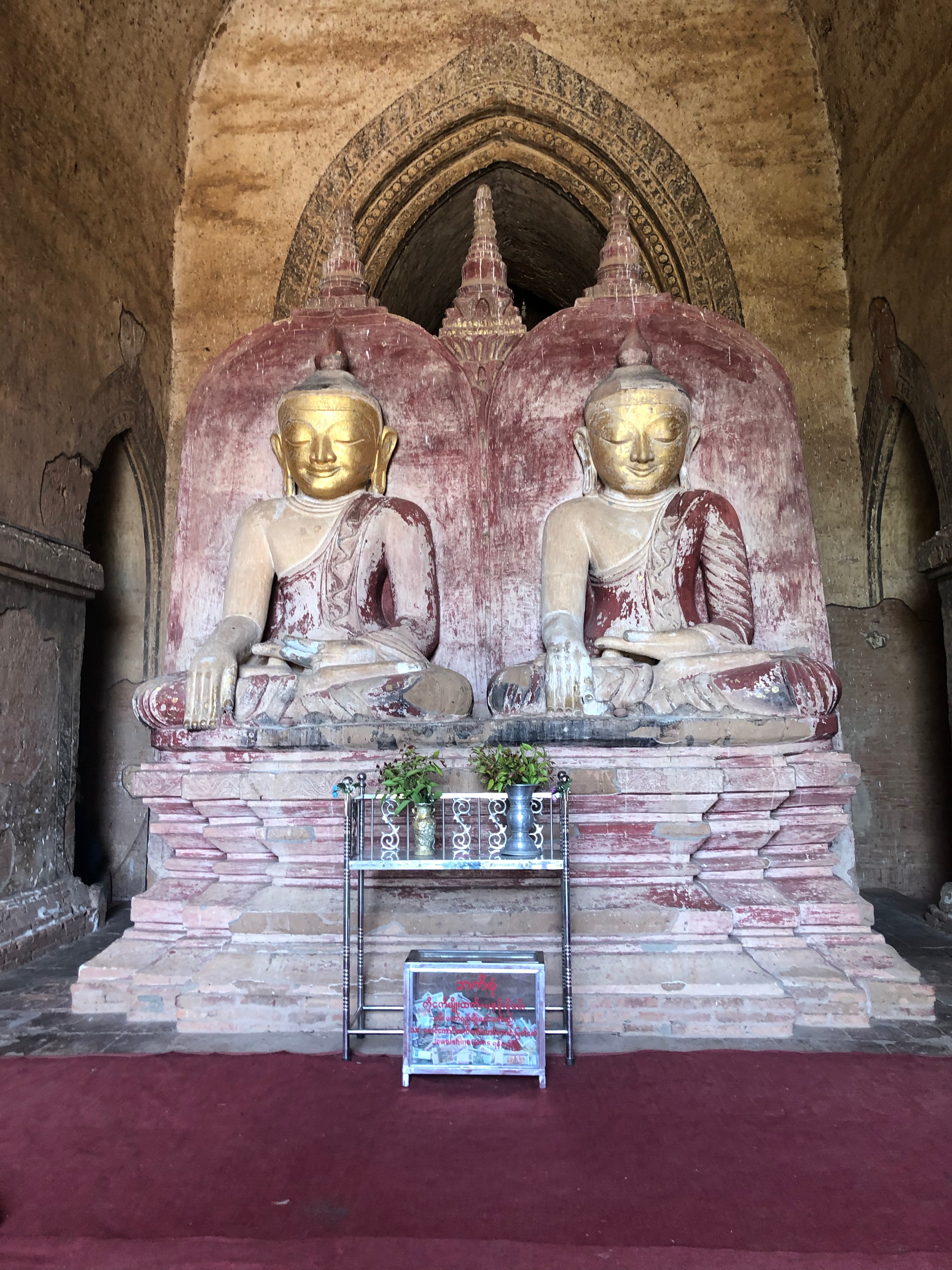
You can let your thoughts drift down a corridor and waft around King Narathu’s perfidy and his probable eternal damnation (or we can hope, anyway):
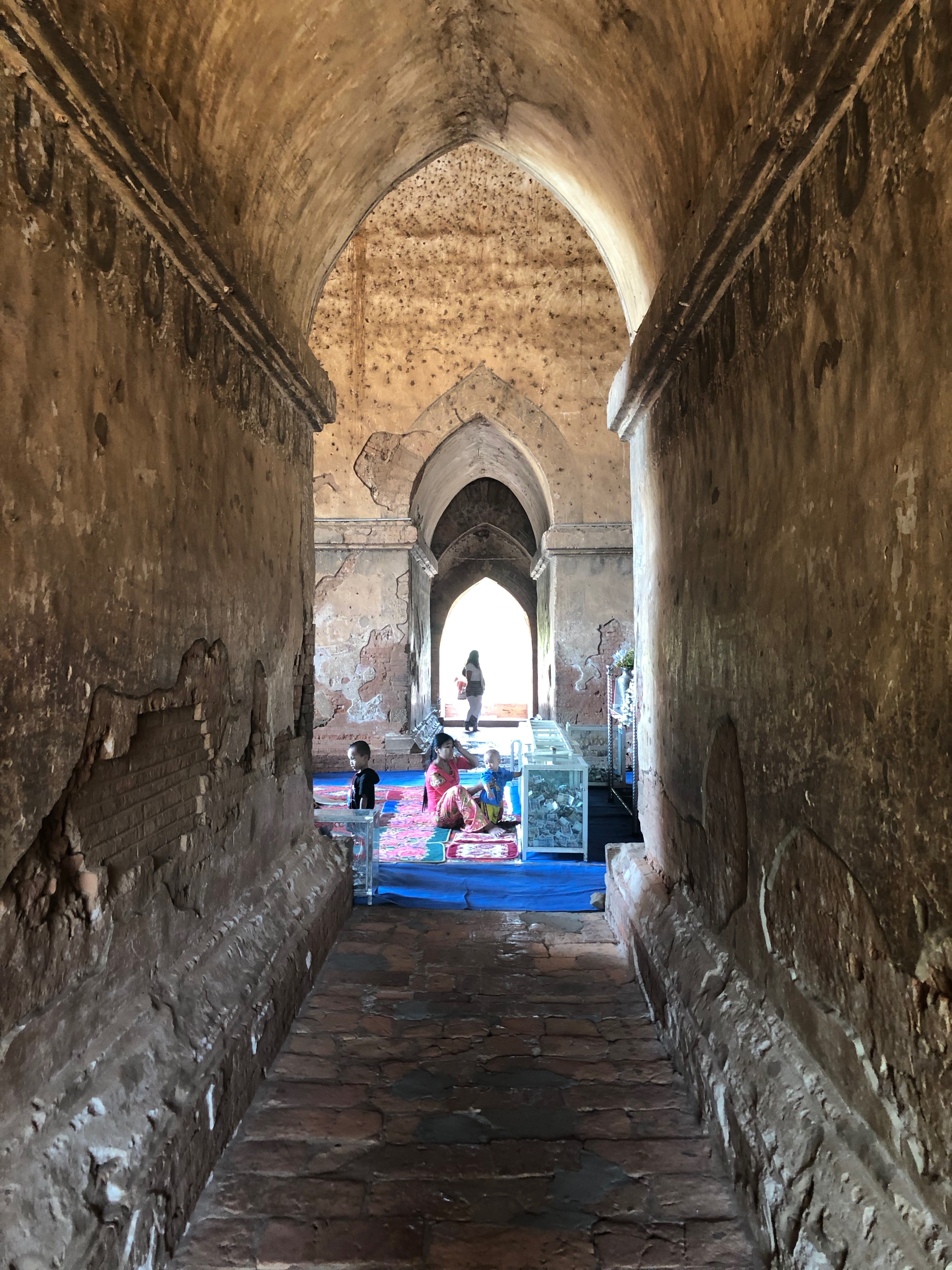
Categorised in: Adventure, Blog, East Asia
This post was written by Julie Tetel Andresen
You may also like these stories:
- google+
- comment



